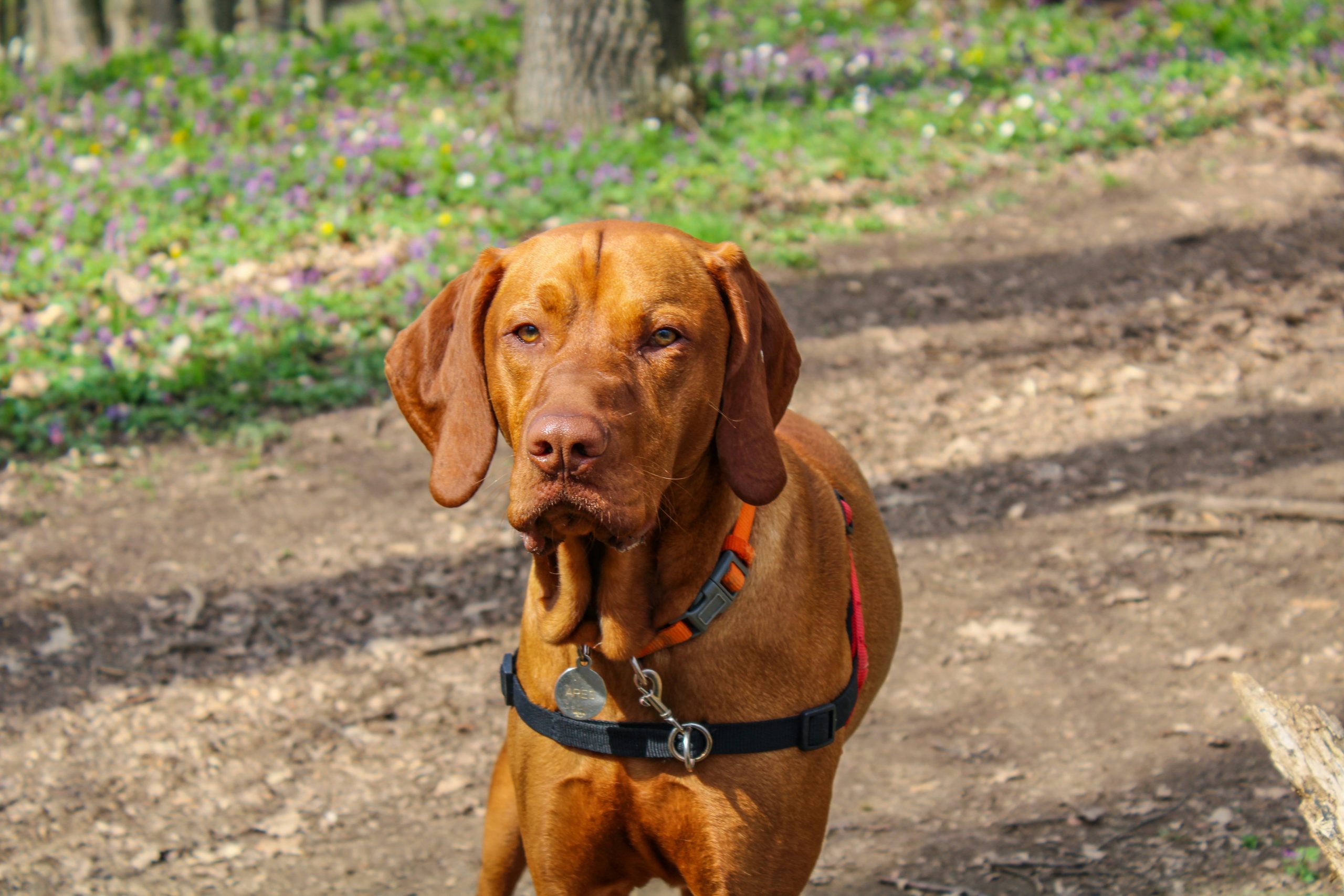The Vizsla, often called the Hungarian Pointer, is a dog breed renowned for its distinguished appearance, exceptional athleticism, and deep-rooted loyalty. Originally bred for hunting, these dogs possess an innate ability to form strong bonds with their human companions, making them excellent family pets. Vizslas are characterized by their sleek, golden-rust coat, lean build, and expressive eyes, encapsulating beauty in motion and at rest. They are celebrated for their high intelligence, trainable nature, and versatile skill set, excelling in various canine sports and activities. Given their active and affectionate disposition, Vizslas require a committed owner who can provide them with ample physical exercise and emotional engagement. When considering bringing a Vizsla into your life, it’s essential to understand the breed’s health considerations and lifespan. While Vizslas are generally healthy dogs, certain health challenges can affect their quality of life and longevity. Awareness and proactive management of these health issues are crucial for ensuring that these spirited companions lead full and happy lives.
Hip Dysplasia
Hip dysplasia, a common skeletal condition in dogs, particularly affects medium to large breeds like the Vizsla. This hereditary condition results when the hip joint fails to develop correctly, leading to arthritis and pain. Symptoms can include difficulty standing up, reluctance to jump or climb stairs, and a noticeable alteration in gait. For Vizslas, managing hip dysplasia involves a combination of lifestyle adjustments, dietary considerations, and possibly medical interventions such as anti-inflammatory medications or surgery in severe cases. Early detection through regular veterinary check-ups can help in managing this condition effectively.
Epilepsy
Epilepsy is another health challenge that can affect Vizslas, manifesting as recurrent seizures that range from mild to severe. The cause of epilepsy can be genetic, or it may stem from an underlying health issue. Managing epilepsy in Vizslas requires a comprehensive approach, often involving medication to control seizures, regular monitoring by a veterinarian, and adjustments to the dog’s environment to reduce stress and potential seizure triggers. While epilepsy can impact a Vizsla’s quality of life, with proper management, many dogs with this condition can lead relatively normal lives.
Lymphoma
Lymphoma, a type of cancer that affects the lymphatic system, is a serious health challenge that can impact Vizslas. Symptoms can include swelling of the lymph nodes, weight loss, lethargy, and decreased appetite. Treatment options vary depending on the stage and type of lymphoma and may include chemotherapy, radiation therapy, and supportive care. Early detection and aggressive treatment are crucial in managing this disease, highlighting the importance of regular veterinary check-ups for early symptom identification.
Progressive Retinal Atrophy (PRA)
Progressive Retinal Atrophy (PRA) is a genetic eye disorder that leads to the degeneration of the retina, eventually resulting in blindness. In Vizslas, PRA can affect dogs even at a young age, with most cases being diagnosed by middle age. Symptoms include night blindness progressing to complete blindness. While there is no cure for PRA, affected dogs can adapt well to their environment with the support and adjustments made by their owners to ensure their safety and quality of life.
Hypothyroidism
Hypothyroidism is a condition where the thyroid gland does not produce enough thyroid hormone, leading to a slowdown in the dog’s metabolism. In Vizslas, signs of hypothyroidism can include weight gain, lethargy, skin problems, and a dull coat. Diagnosis involves blood tests to measure thyroid hormone levels, and treatment typically consists of daily thyroid hormone replacement. With proper management, Vizslas with hypothyroidism can live normal, healthy lives.
Allergies
Allergies are another common health issue in Vizslas, manifesting as skin irritations, digestive problems, or respiratory distress. Various factors, including environmental allergens, food ingredients, or flea bites can trigger allergies. Identifying the specific allergen through veterinary testing and adjusting the dog’s environment or diet accordingly is key to managing allergies. Treatment may also include medications to relieve symptoms and improve the dog’s quality of life.
Understanding these common health challenges is essential for prospective and current Vizsla owners. While these issues can affect the lifespan and well-being of Vizslas, proactive health management and regular veterinary care can greatly mitigate their impact. By being informed and prepared to address these health concerns, owners can ensure their Vizsla companions enjoy a long, happy, and fulfilling life.
How Can I Extend the Lifespan of My Vizsla?
Vizslas are a beloved breed known for their loyalty, intelligence, and athletic prowess. Originating from Hungary, these dogs have served as loyal companions and skilled hunters. Renowned for their sleek, rust-colored coat and expressive eyes, Vizslas are as beautiful as affectionate. Owners of this breed cherish their high energy and eagerness to please, making them excellent family pets and competitive sports participants. Understanding how to care for a Vizsla can significantly impact their health and extend their lifespan, ensuring many joyful years together.
Optimal Nutrition for Your Vizsla
Feeding your Vizsla a balanced diet is the cornerstone of their overall health. Opt for high-quality dog food that meets the nutritional standards of the Association of American Feed Control Officials (AAFCO). The diet should be appropriate for their age, size, and energy level, providing all necessary nutrients for optimal health. Regularly consulting with a veterinarian can help tailor the diet to your Vizsla’s specific needs, preventing obesity and its associated health risks.
Regular Exercise and Mental Stimulation
Vizslas are high-energy dogs that thrive on physical activity and mental engagement. Adequate daily exercise is crucial for maintaining physical health and preventing behavioral issues. Activities like running, hiking, and playing fetch can help keep your Vizsla physically fit, while agility training and interactive toys can provide the necessary mental stimulation. Keeping your Vizsla engaged and active promotes a healthy weight and strengthens your bond with them.
Preventative Veterinary Care
Preventative care plays a critical role in extending your Vizsla’s lifespan. Regular veterinary check-ups can help catch and treat potential health issues early. Vaccinations, parasite prevention, and routine screenings for diseases common to the breed are essential components of preventative care. Dental hygiene, including regular teeth cleanings and at-home brushing, can prevent periodontal disease, which can impact overall health.
Socialization and Emotional Well-being
Vizslas are known for their strong attachment to their human families. Ensuring they are well-socialized and emotionally supported is key to their well-being. Socialization from a young age helps prevent anxiety and aggression, making your Vizsla more adaptable and confident. Providing consistent companionship, love, and attention meets their emotional needs and strengthens the human-animal bond.
Managing Common Health Issues
Being proactive about your Vizsla’s health involves being informed about common breed-specific health issues, such as hip dysplasia, epilepsy, and allergies. Work closely with your veterinarian to monitor for signs of these conditions. Early detection and management can prevent complications and improve quality of life. Discuss the benefits of health screenings and genetic testing with your vet to prepare for or mitigate these health challenges.
Nutritional Supplements
Consider incorporating nutritional supplements into your Vizsla’s diet to support their overall health, particularly for joints, skin, and coats. Supplements such as omega-3 fatty acids, glucosamine, and chondroitin can be beneficial, especially for breeds prone to joint issues like hip dysplasia. Always consult a veterinarian before adding any supplements to your dog’s diet to ensure they are necessary and appropriate for your pet’s health needs.
A Safe and Stimulating Environment
Creating a safe and enriching environment is vital for your Vizsla’s physical and mental health. Ensure your home and yard are secure to prevent escapes and accidents. Provide a variety of toys and change them regularly to keep your Vizsla mentally stimulated. Avoid exposing your dog to harmful chemicals and ensure they have a comfortable, quiet place to rest and feel secure.
Training and Behavior Modification
Effective training and behavior modification techniques are important for managing your Vizsla’s energy and preventing stress. Use positive reinforcement methods to encourage good behavior, and consider enrolling in obedience classes or sports training designed for high-energy breeds. Training stimulates their mind and enhances the bond between you and your Vizsla.
Routine Grooming
Although Vizslas have short coats, regular grooming is still important for their health. Routine brushing helps distribute natural oils, keeping their coat shiny and skin healthy. Regular nail trims, ear cleaning, and dental care are essential grooming tasks that contribute to overall health and prevent common problems.
Weight Management
Maintaining an ideal weight is crucial for your Vizsla’s health. Overweight dogs are at a higher risk for numerous health issues, including heart disease, diabetes, and joint problems. Monitor your dog’s weight regularly and adjust their diet and exercise routine as needed to ensure they remain at a healthy weight.
Adequate Hydration
Ensuring your Vizsla stays well-hydrated is essential, especially after exercise or during hot weather. Fresh, clean water should always be available, and you might consider providing multiple water stations in your home and yard. Hydration is crucial for kidney function and overall health.
Foster a Strong Bond
The relationship you share with your Vizsla significantly impacts their health and happiness. Spend quality time together, engage in activities you both enjoy and provide plenty of affection. A happy, well-loved Vizsla will likely lead a longer, healthier life.
By following these guidelines, you can help ensure your Vizsla enjoys a long, happy, and healthy life. Remember, each dog is unique, and their care should be tailored to their needs. Regular communication with your veterinarian and a commitment to providing the best care possible is key to maximizing your beloved companion’s health and lifespan.





